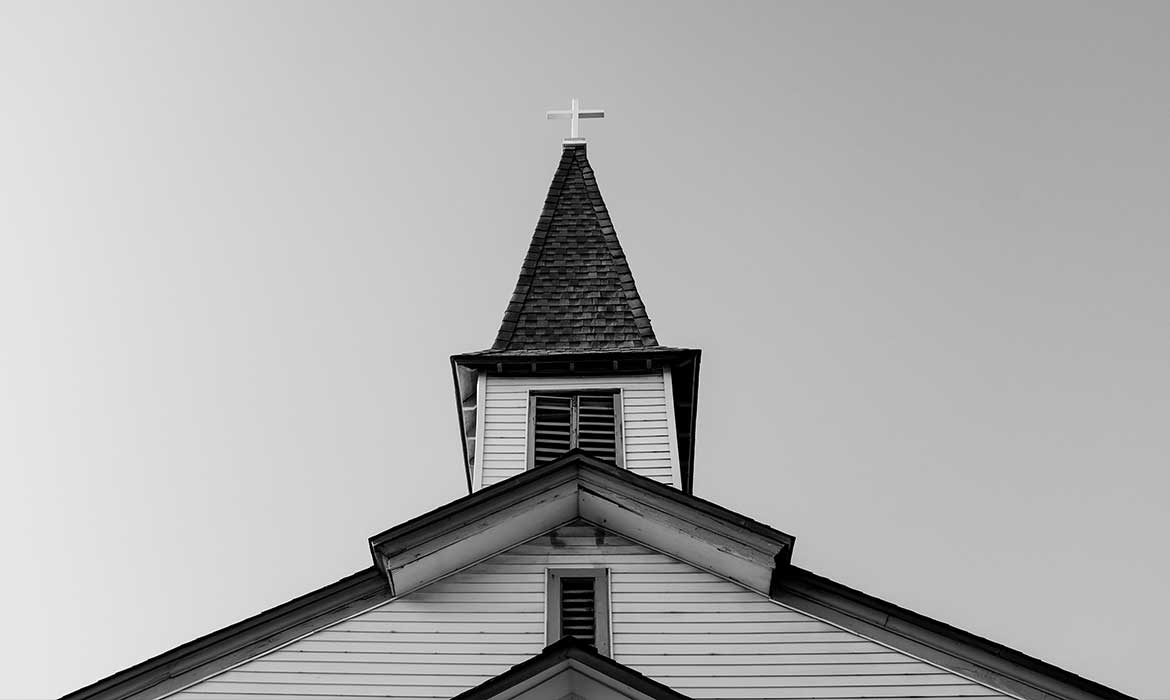As difficult as it is, I believe this cultural movement is a gift to the church. We have the opportunity to lead boldly rather than to trail timidly or argue defiantly.
by Ruth Everhart, author of Ruined
The #MeToo movement shows no signs of slowing. Powerful men are being held to account for their past sexual harassment and abuse of women. This is nothing less than a cultural shift—affecting primarily the worlds of entertainment, media, and politics. But what about the church?
As a person of faith and as a pastor, I wish that the church were on the forefront of this moral movement. Instead, Hollywood and Washington are showing the church how to pursue justice. The lack of allegations against church leaders is not due to a lack of victims. Rather, the church is still prone to keeping its skeletons locked in the closet. I believe this from personal experience.

Like so many women, I have a #MeToo story. I told mine shortly before the movement began, when Tyndale published my memoir, Ruined, in 2016. That memoir is my story of being raped at gunpoint while a college senior, an event so pivotal that it caused me to reinvent my life and my faith. It took me a decade to come to terms with a God who would create a world where such a thing could happen.
Since that book was released, I have heard from countless other survivors of rape and abuse. I encourage these women to tell their stories by any means available. I testify to the healing power of testimony. We must tell our stories. Perhaps this is why I am so energized by the #MeToo movement—even as I acknowledge how exhausting and painful and triggering it can be. Still, I believe that the God who gave each of us a story did not expect us to keep those stories locked in silence.
The healing power of testimony is why I have recently told another #MeToo story—one more specifically tagged #ChurchToo. In many ways, this story was even more difficult to tell than the first. This victimization was not by a masked stranger, but by a person entrusted to be my mentor in my early years of ministry. Perhaps one reason this story feels doubly dangerous is that it’s interwoven with my vocation—a unique vulnerability. If you grew up in a conservative faith tradition like I did, you may understand why entering ministry as a woman felt like a transgressive act, which made me vulnerable to a predator.

My memoir, Ruined, ends just after I graduated from seminary. Soon after that final scene—where I suckled my newborn daughter in a sanctuary—I was thrilled to be called to a position in my first church. I was to be the associate pastor in a thriving suburban congregation.
But within months of my arrival, my boss, the senior pastor—the man privileged to lay his hands on my head to ordain me—laid his hands on my head to forcibly kiss me. This act was the culmination of his repeated boundary violations.
When I told the church’s personnel committee about these abuses, the committee’s response was to deny, ignore, and minimize what had happened. They failed to act. The problem was mine to bear. Two long and painful years passed before I could find another call and leave that church. Decades later, I found my voice and brought an allegation against my abuser in an ecclesiastical court. He pled guilty.

Fortunately, this bad beginning did not deter me from pursuing my ministry vocation. I have had more than twenty-five years as a pastor to ponder why the church is often worse than many secular employers and fails to respond appropriately to abuse.
Sexual harassment and abuse are often rooted in the belief that women are less worthy than men. Within the church, this belief may be buttressed by specific interpretations of Scripture: Women were created second, and Eve ate that apple. The apostle Paul gave some unsettling directives, too. Less specific is what some might term “the created order,” which suggests that because women bear children, they also bear the weight of keeping the human machine functioning. Therefore, women are to perform the essential but unheralded and invisible tasks of life. Women are not to be visible, voiced leaders. Their stories do not matter.
It is not surprising that the problem of harassment is growing as women enter ordained ministry in increasing numbers. Women who are visible and voiced become targets. Granted, Protestant Christianity is a sprawling world. Numerous pockets are vocal in their belief that women are less worthy than men, which is a recipe for domination and abuse. But even the denominations that pay lip service to full equality between women and men sometimes fail to live up to that claim.

Meanwhile, the church at large is becoming less central to American life. As churches shrink and the status of clergy drops, women are flooding into church leadership, typically as the pastors of small (or multiple very small) congregations. In this new world, women pastors may face harassment from the people in their pews, their church boards, their denominational structures, and their ecumenical partnerships. The weight of tradition, various scriptural interpretations, and a general frustration with the decline of the church all stack against female leaders.
My own denomination, the Presbyterian Church USA, has been ordaining women for sixty years yet does not treat sexual harassment and abuse as the serious problem it is. Too often, the church fails to call for justice for offenders. Instead, churches call victims to find ever-ephemeral “healing.” In my opinion, this is equivalent to giving women one more essential but invisible task for the betterment of the world: Bear your wounds silently.
When the problem is stated like this, good Christians want to do better. But in order to do better, we will first have to confront an underlying belief that is best described in a single, controversial word: patriarchy.

Churches face a steep learning curve. Our traditions follow the “church fathers.” Our scriptural interpretation is weighted toward a male-dominated view of the world. And perhaps most significant, the church is where people retract to escape an ever-changing social structure. To many, the #MeToo movement is one more way that our society is being asked to change—and very quickly! It’s no surprise that the church recoils from #ChurchToo.
As difficult as it is, I believe this cultural movement is a gift to the church. We have the opportunity to lead boldly rather than to trail timidly or argue defiantly. Victims can come forward and give voice to their stories, not as an act of malice or bitterness, but because the church needs to do better. The church must pursue justice.
I believe that if individual congregations—and whole denominations—can rise to the challenges before us, a much-needed reformation of the Protestant church will be underway. This will only occur when individuals like you and me tell our stories. What story do you have to tell? To what church board, print resource, or online outlet might you tell it?
Like a host of others, I am ready to listen.
 Ruth Everhart is the author of Ruined, a memoir about her struggle with faith after being raped. She is the pastor of Hermon Presbyterian Church in Bethesda, Maryland.
Ruth Everhart is the author of Ruined, a memoir about her struggle with faith after being raped. She is the pastor of Hermon Presbyterian Church in Bethesda, Maryland.
One brisk November evening during her senior year at a small Midwestern Christian college, two armed intruders broke into the house Ruth Everhart shared with her roommates, held all five girls hostage, and took turns raping them at gunpoint. Reeling with fear, insecurity, and guilt, Ruth believed she was ruined, both physically and in the eyes of God.
In the days and weeks that followed, Ruth struggled to come to grips with not only what happened that night but why. The same questions raced through her mind in an unrelenting loop—questions that would continue to haunt her for years to come:
Why me? Where was God? Why did God allow this to happen? What am I being punished for?
Told with candor and unflinching honesty, Ruined is an extraordinary emotional and spiritual journey that begins with an unspeakable act of violence but ends with tremendous healing and profound spiritual insights about faith, forgiveness, and the will of God.




2 Comments
[…] When #MeToo Becomes #ChurchToo […]
Bless your heart, Ruth, I would like request permission to share some excerpts from this post related to an overture regarding abuse of power that I have personally submitted to the CRCNA Synod 2018. I compiled and included an appendix with quotes from various public forums regarding abuse of power in the Church, but in order to share these quotes with the synodical CRC advisory committee for Synod 2018, the CRC synodical planners have requested that I get permission from each person I am quoting… here’s the excerpts from this post that I hope to share with the Synodical advisory committee that will be addressing the overture in June:
Ruth Everhart, author of “Ruined”; three excerpts from: http://readthearc.com/when-metoo-becomes-churchtoo/ BOQ: As difficult as it is, I believe this cultural movement (#metoo and #churchtoo) is a gift to the church. We have the opportunity to lead boldly rather than to trail timidly or argue defiantly… the church needs to do better. The church must pursue justice…
As a person of faith and as a pastor, I wish that the church were on the forefront of this moral movement. Instead, Hollywood and Washington are showing the church how to pursue justice…
I believe that if individual congregations—and whole denominations—can rise to the challenges before us, a much-needed reformation of the Protestant church will be underway.EOQ
If you would like more context for the overture before giving permission to include , please feel free to contact me via my email… and I will be glad to share more…
Bev Sterk